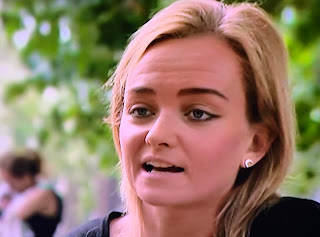While making a speech on November 10th 2020 about a possible Corona Virus vaccine, Boris Johnson said this: “We’ve talked for a long time about the distant bugle of the scientific cavalry.”
You’re probably thinking that there’s nothing particularly noteworthy or memorable in those words but for me, they brought back a long-forgotten memory.
Hearing the word “bugle” spoken aloud for the first time in 60 years or so, reminded me of something that my friends and I used to do when we were about 14 years old.
I find it particularly important because it is a “New Memory” for me and that’s significant because as far as I can tell, all my memories until now have been what may only be described as “Old Memories”.
Some nights ago, instead of counting sheep when I couldn’t sleep (which, by the way, doesn’t ever work), I was trying to think of something from the distant past; something that I haven’t thought about since the time it happened.
In other words, I was trying to bring back, or even to generate for the first time, a long-forgotten memory - something that I have never thought about since it happened. I failed because everything I thought of was something I always think of when thinking about that topic. No new memory would come to mind.
I thought about my schooldays and about the different classrooms and labs in which I was ever taught and tried to remember an event in each one. For most of them I could remember something that happened there but they were always the same old memories – never anything new.
For fifteen years of my life, I was a frequent passenger on buses in Lowestoft but I can’t think of any aspect or event that happened during any of those bus journeys I made.
I can remember the stops where I got on and off a bus and I can remember the bus numbers as well as the colours of those buses but I recall absolutely nothing about any bus journey I ever made.
I only have two memories of my grandfather who died when I was 13. One is going for a walk with him when I was about five. He always carried a walking stick and on that occasion, for some reason, so did I. My other memory is some years later of him standing on the boundary, watching me play in a school cricket match.
I was with him many times and it is very depressing that I have forgotten everything about those meetings. I wonder whether my grandchildren will remember anything of me in 60 years’ time.
When batting, I must have been dismissed more than 2500 times and yet, if I try to remember any of those dismissals, it is always the same five or six that come to mind and never any of the others.
I played at hundreds of different cricket grounds over 40 years and for every ground I can remember playing at, I only have one memory. There are, though, two exceptions. One of them is Arden Field where my club, Finchley, played and the other is Gerrards Cross, where I have two memories.
I first remember playing at Gerrards Cross in July 1974, not because of the game itself but because it was there that I first heard the word “bonk” used as a synonym for sexual intercourse.
At about three o'clock on a Sunday afternoon, I was fielding at first slip when, between deliveries and apropos absolutely nothing whatsoever, second slip asked me how many people in the UK I estimated were bonking at that precise moment. It is odd that although I had never heard the term before, I knew exactly what he meant by “bonking”.
I also remember playing there on Sunday July 18th 1976. That was memorable because Alice, my elder daughter, was born the following morning.
It seems that my memory is like an art gallery where the rows of pictures never change. As with those pictures, my memories are permanent and fixed - until now!
Thanks to Boris Johnson, I have discovered a memory from long ago and now I remember something that I haven’t thought of for several decades.
When I was 14, all my friends were boys. I was at school with girls and girls made up at least half of every class I was ever in but I never spoke to any of them. At that age, my friends and I didn’t talk to girls - but we did talk about them.
When the Prime Minister mentioned the sound of “the distant bugle” the other day, I was transported back to Lowestoft town centre, where my school friends and I would wander about on a Saturday morning.
As we walked along in a group of three or four, one of us might spot an attractive girl.
“Look,” he would say and then, putting on as broad a Suffolk accent as possible, would sing out:
“Doo yer think she boogle?”
Thereupon, the rest of us would chant back in unison:
“Yer bet yer loife she do.”
Then, we would giggle like naughty boys who were slightly embarrassed because they knew they were being smutty.














